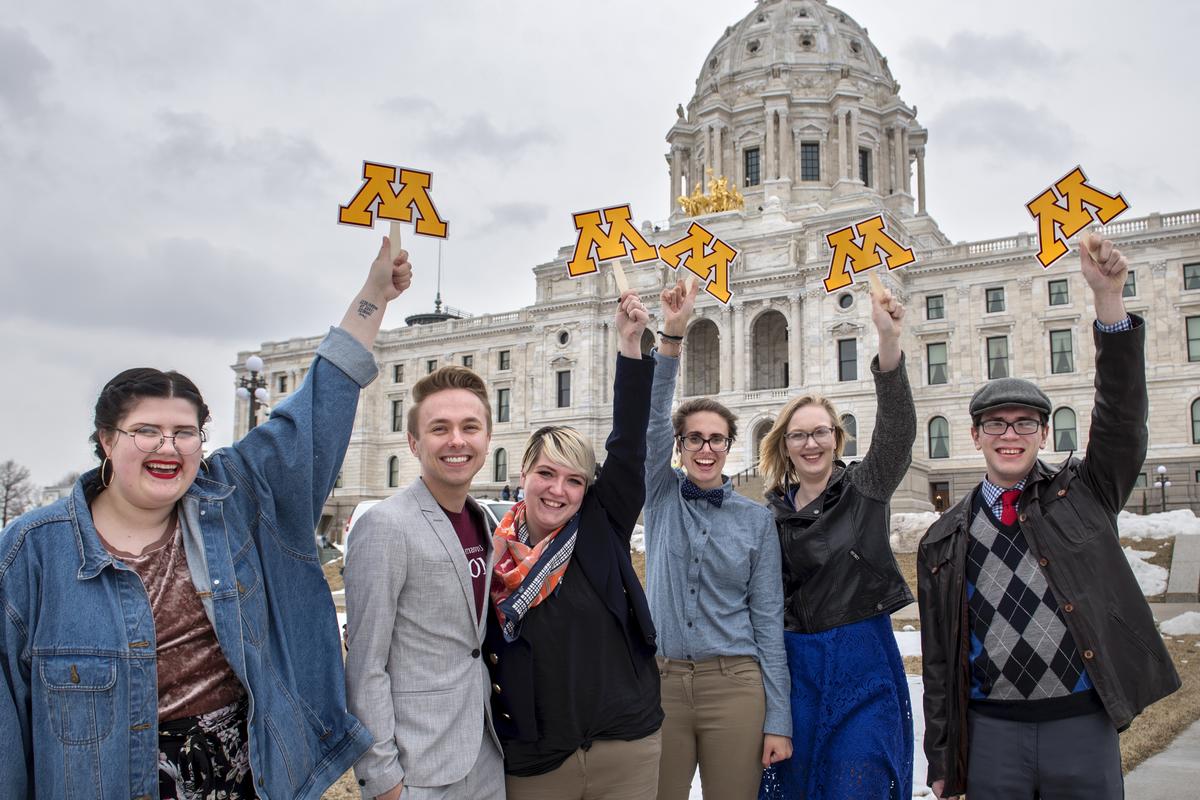
Speech and expression engender a vibrant learning community on campus. However, their impacts are sometimes uncomfortable, hurtful, or harmful.
Ideas, policies, practices, and beliefs held by individuals, organizations, government, and institutions like the University of Minnesota often have adverse effects on students with historically marginalized identities, and can threaten students’ sense of security and belonging on campus.
The University of Minnesota has many resources to students experiencing distress caused by expression on campus. Students are encouraged to contact the resource with which they are most comfortable.
Legal Services
- Student Legal Services
- Student Legal Services provides high-quality legal services and education that supports student success.
- Volunteer Lawyers Network
- Volunteer Lawyers Network is a 501(c)3 non-profit organization dedicated to connecting Minnesotans experiencing poverty with some of the top private lawyers in the state at no cost.
- Southern Minnesota Regional Legal Services
- Southern Minnesota Regional Legal Services provides free, high-quality legal help to low-income people in critical civil matters. For 110 years, we’ve helped individuals and families secure and protect their basic needs, maintaining freedom from hunger, homelessness, sickness, and abuse. Because, justice matters.
- Mid-Minnesota Legal Aid
- Mid-Minnesota Legal Aid attorneys, staff, and volunteers handle civil legal matters for Minnesota’s most vulnerable people for no charge.
- National Lawyers Guild
- The National Lawyers Guild is best known for their work defending the rights of protesters.
Counseling
- Boynton Health Counseling
- Boynton Health offers mental health counseling to all students- up to 10 sessions per year for individual therapy sessions. It is a safe confidential place to air grievances, talk through issues that have mentally or emotionally affected you, and work through mental heath crises.
- Student Conflict Resolution Center
- The SCRS is a resource for reporting issues you have experienced and can be used as a resource to resolve university based problems and concerns. This may include a conflict with another student, or a member of faculty or staff.
- Student Counseling Services
- SCS focusses on sharing difficulties you have experienced in order to learn new strategies and behaviors in a safe and supportive environment. They offer group, individual, skills, and career counseling.
Contacts
We encourage students to contact the Dean of Students, ([email protected]) or the Dean of their College, if they feel expression has affected their academic performance. We encourage students to reach out the office of Community Standards if the student conduct code has been violated. We encourage students to contact the Office of Equity and Diversity if they feel they are being harassed or harmed based on a protected class or identity.
- Office of Equity and Diversity
- Office for Community Standards
- https://communitystandards.umn.edu/
- Contact community standards for student conduct code violations
- Vice Provost for Student Affairs and Dean of Students - [email protected]
- Deans of Colleges -
- College of Biological Sciences
- College of Design
- College of Education and Human Development
- College of Food, Agricultural and Natural Resource Sciences
- College of Liberal Arts
- Carlson School of Management
- College of Science and Engineering
- School of Nursing
- Reporting/Public Safety
- Emergency: 911
- Public Safety Dispatch:
- Office - (612) 624-3550
- University of Minnesota Police Department (Non-Emergency Dispatch):
- (612) 624- COPS (2677)
- (anonymous tip line) (612) 624-TIPS(8477)
- UMN Crisis Text Line: call 612-301-4673 anytime or text "UMN" to 61222.
